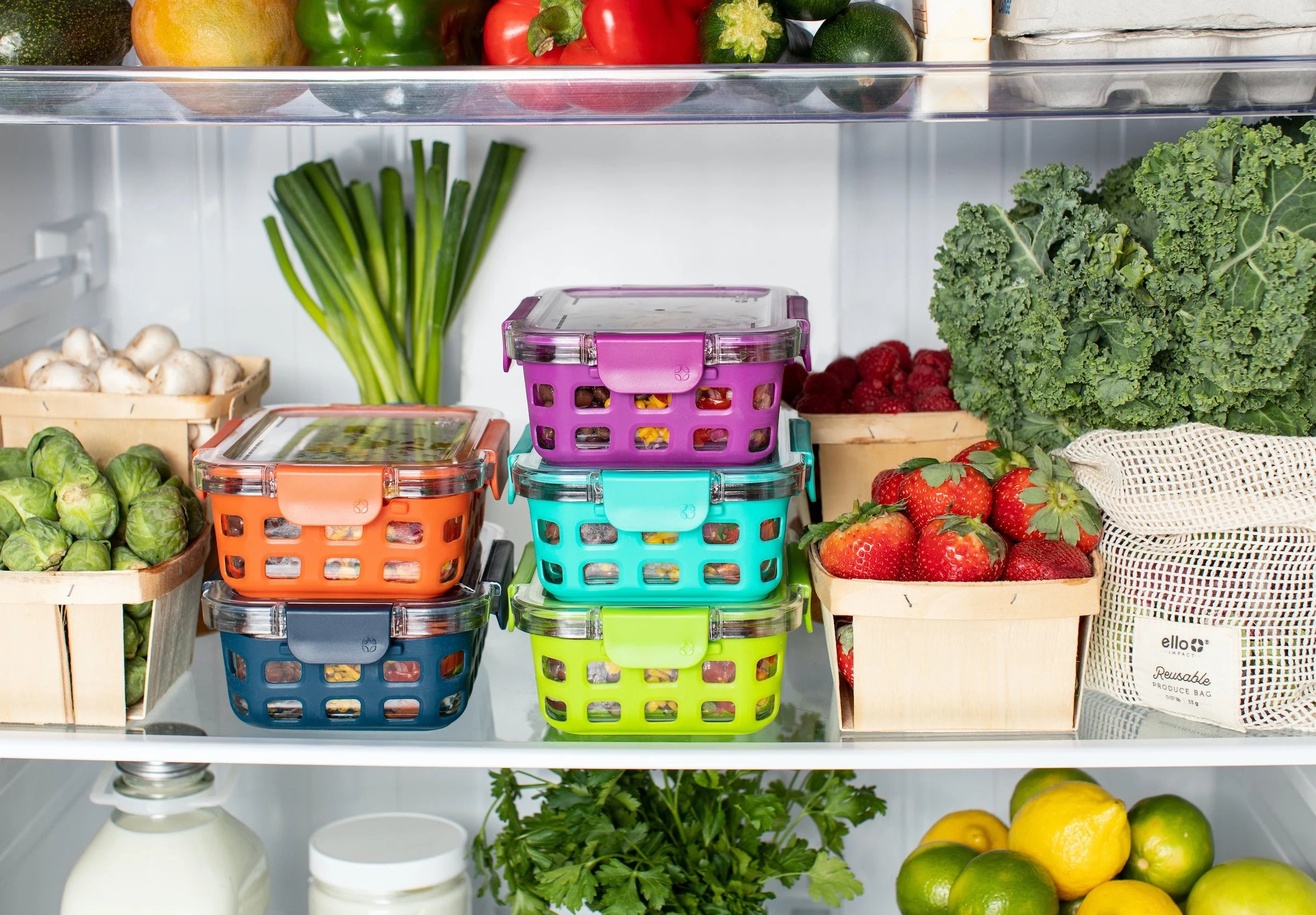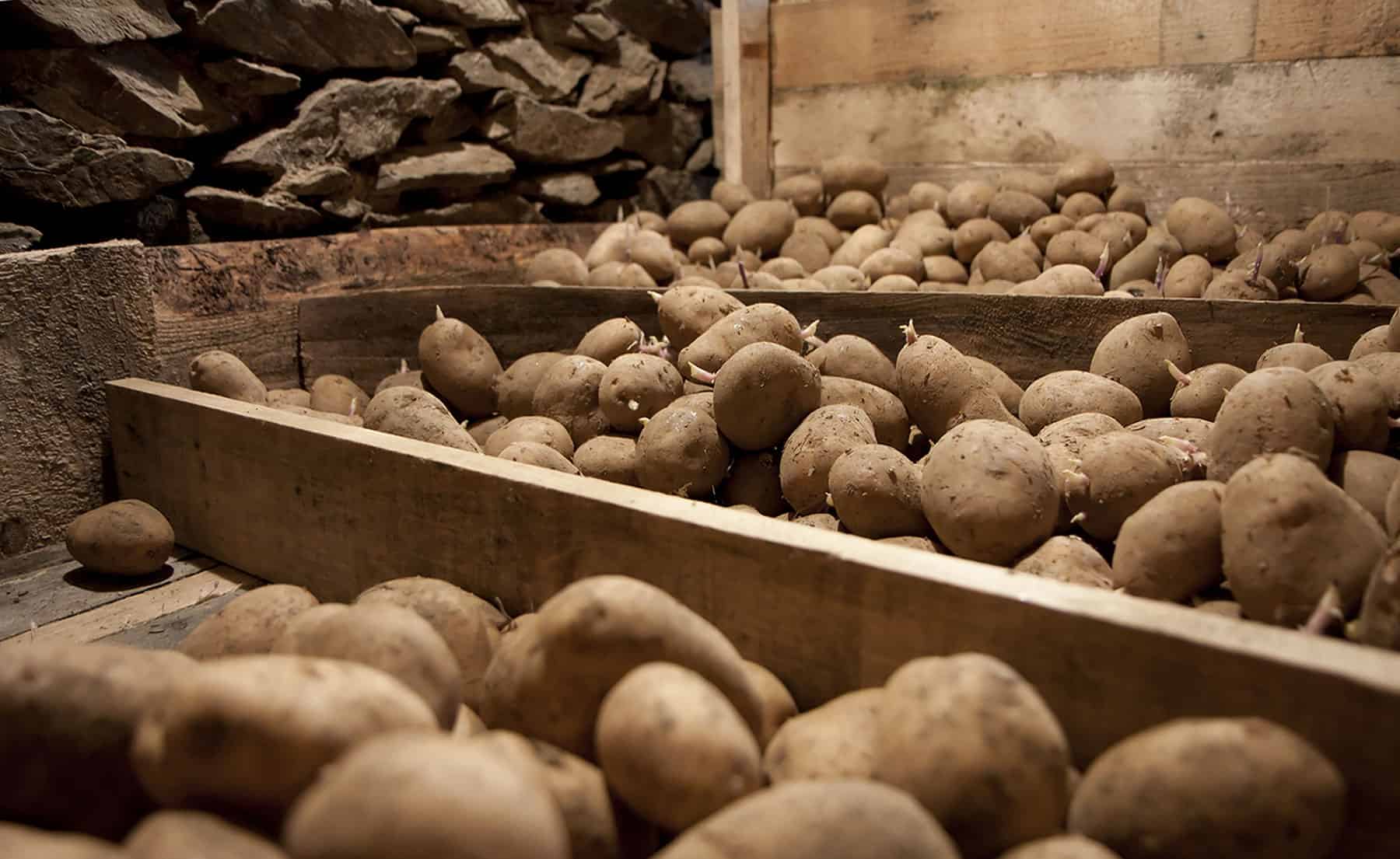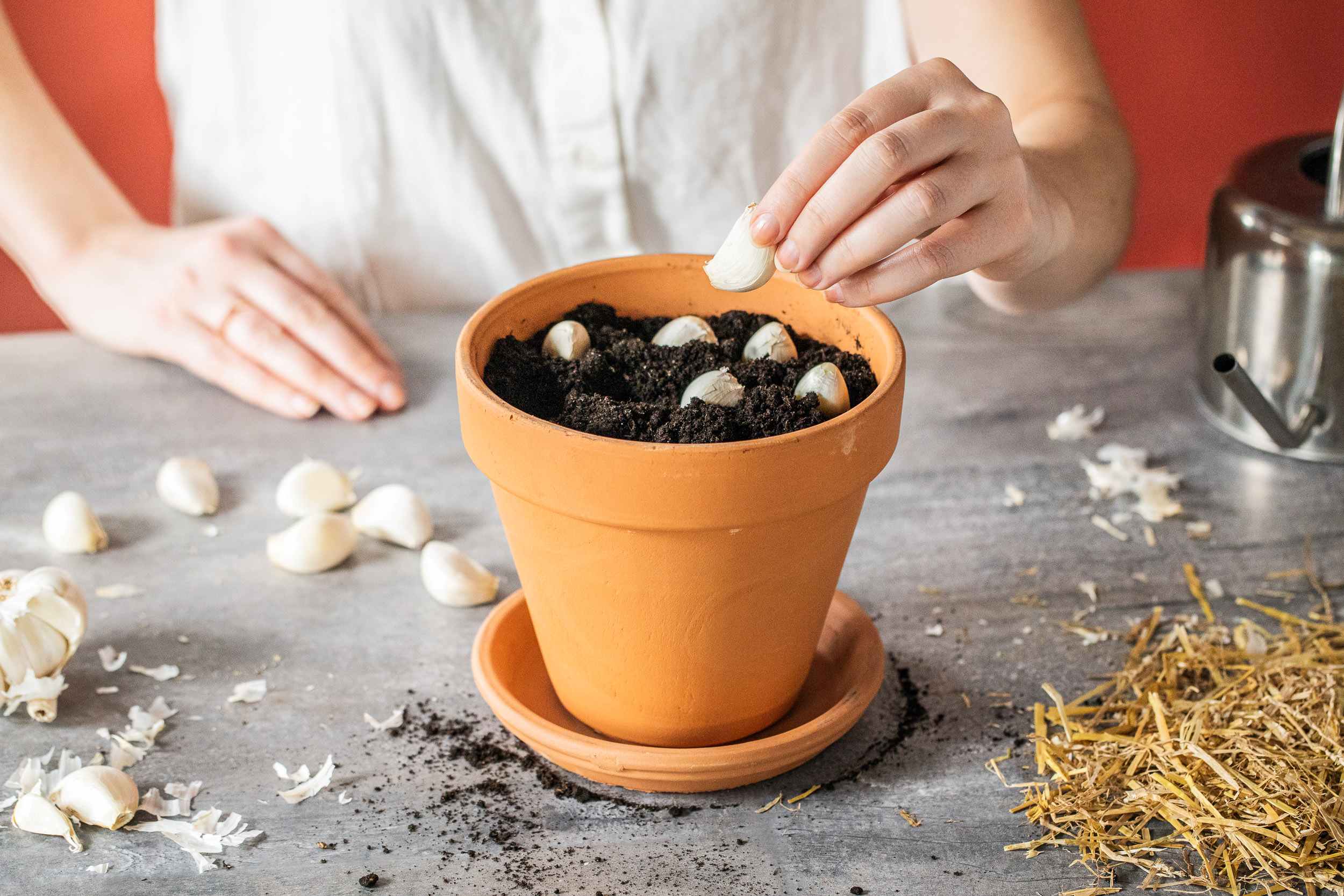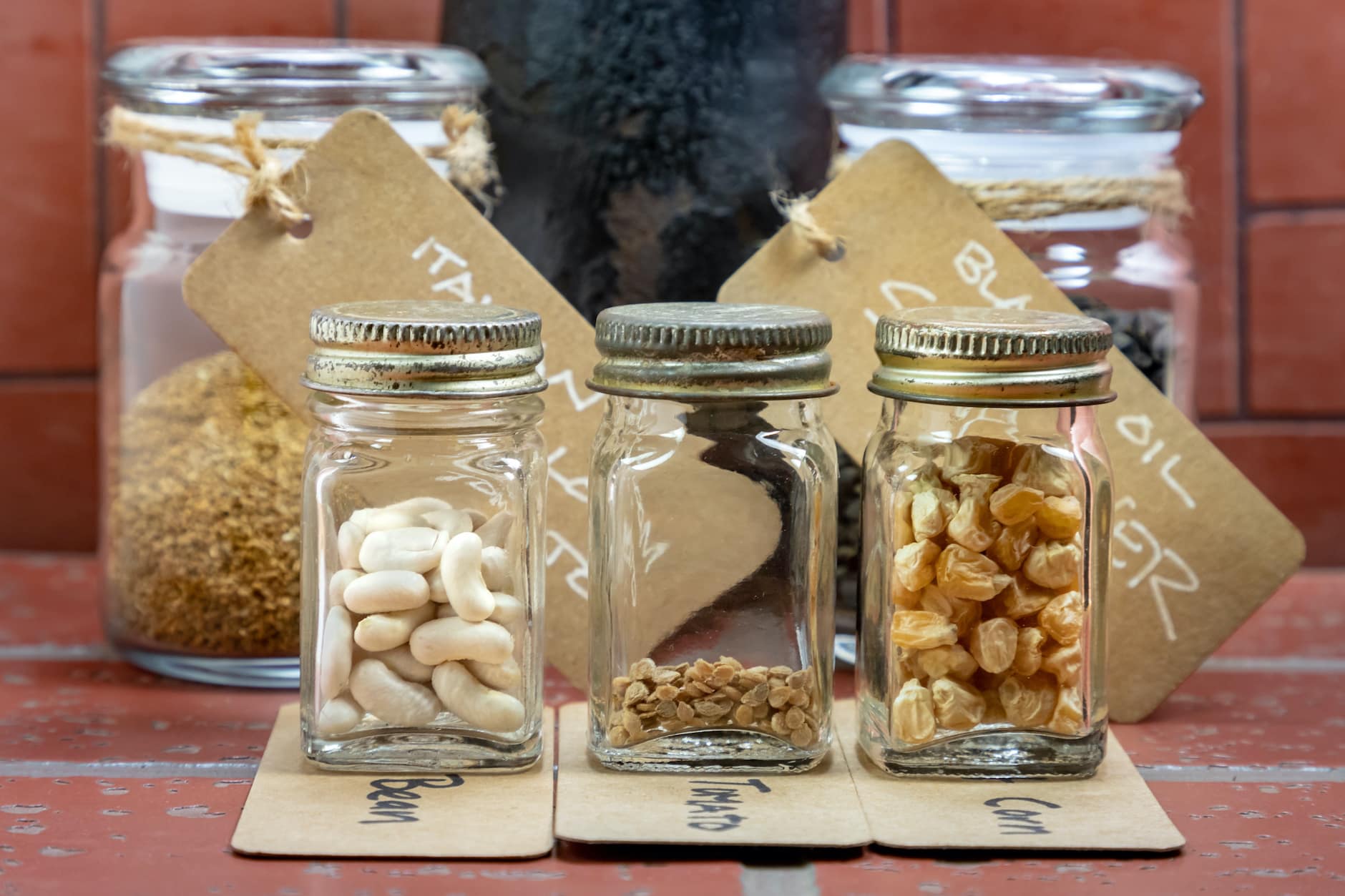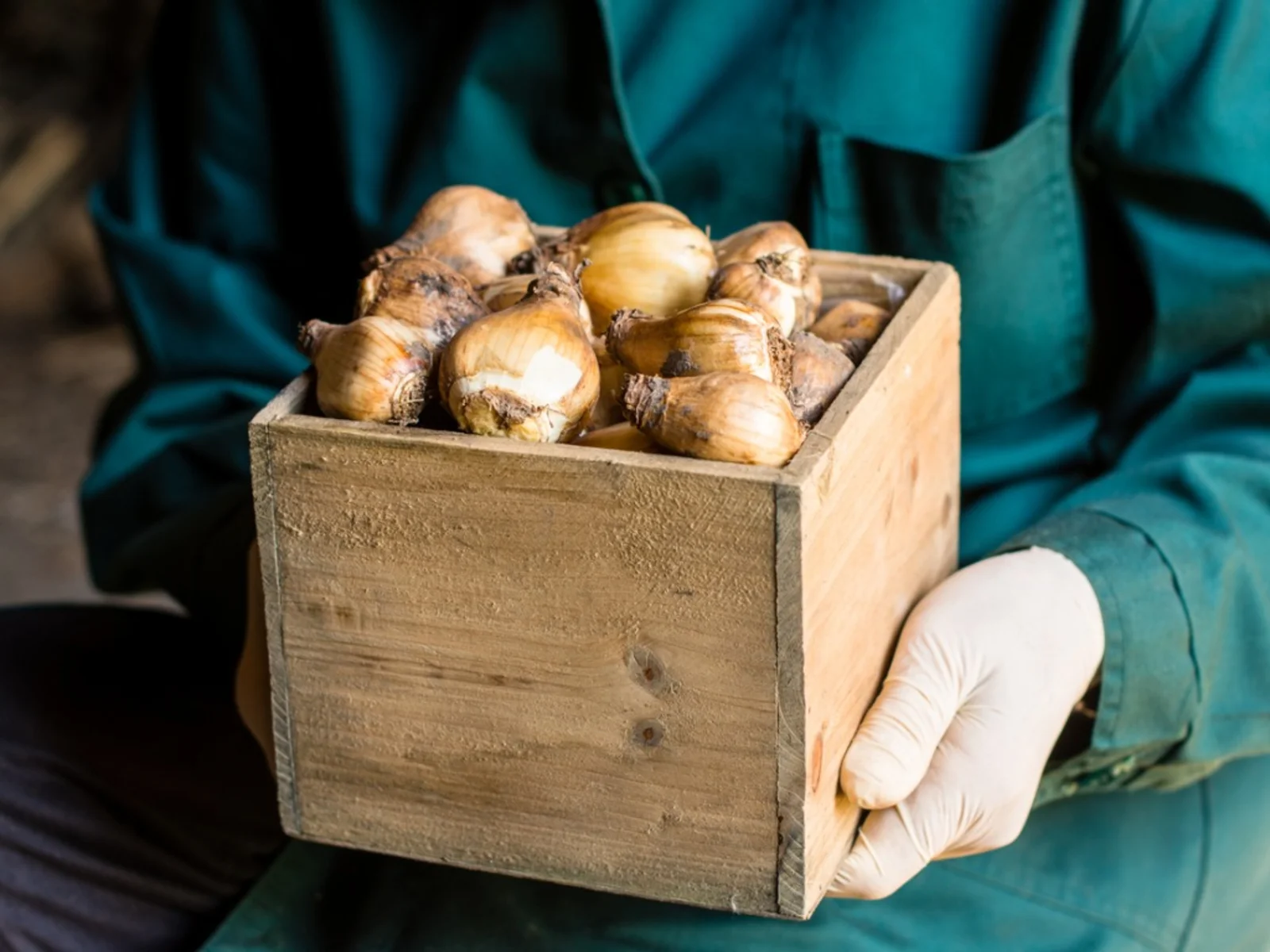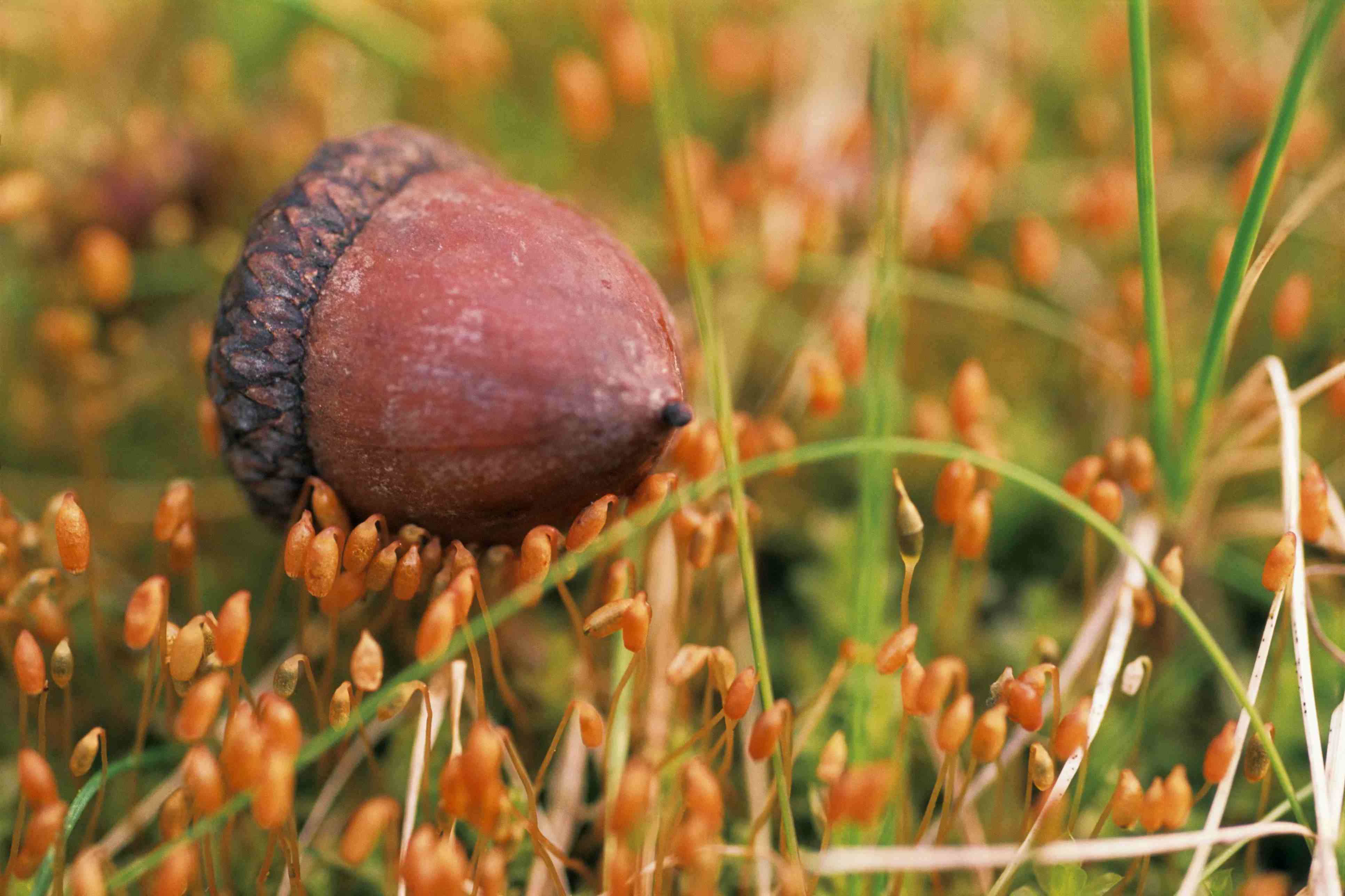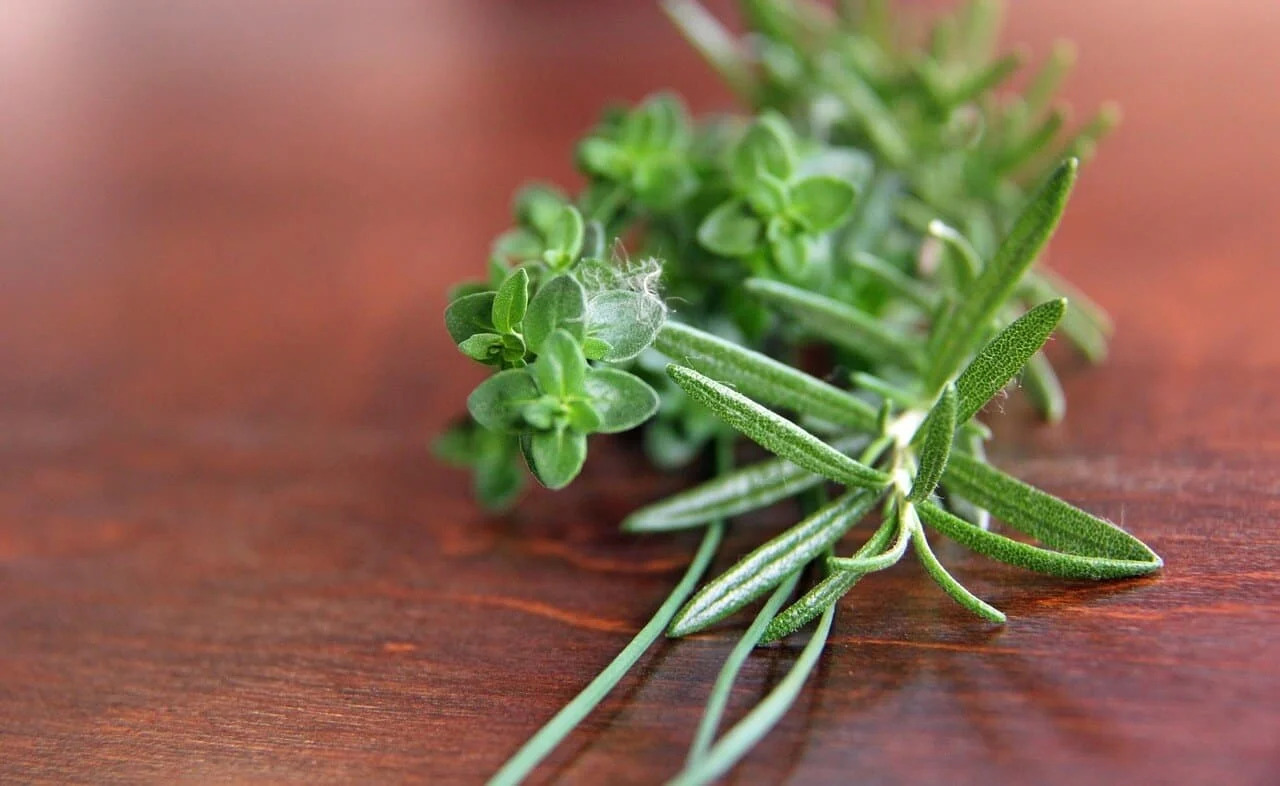Home>Gardening News and Trends>Latest News>How To Store Herbs And Spices
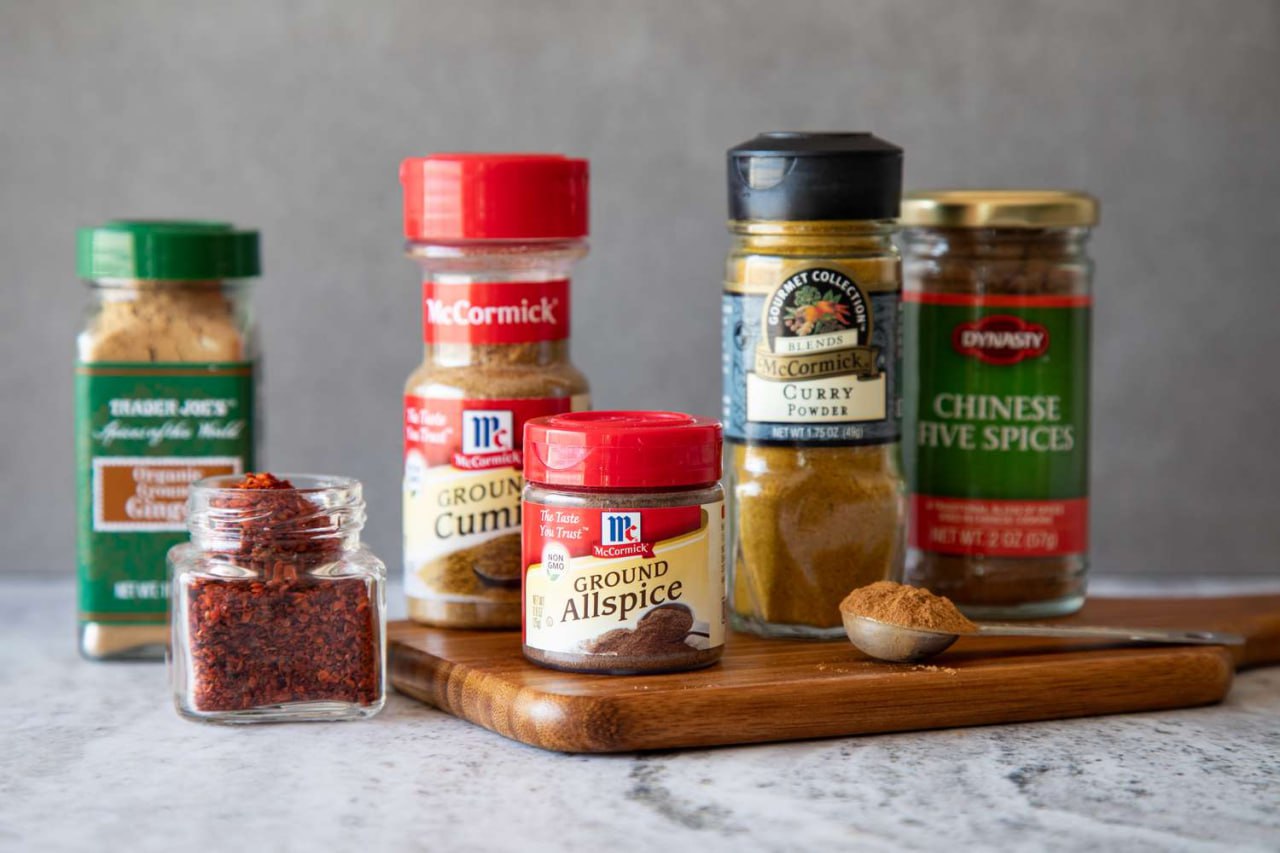

Latest News
How To Store Herbs And Spices
Modified: January 22, 2024
Discover the latest news and expert tips on how to properly store herbs and spices to enhance their flavor and prolong their shelf life.
(Many of the links in this article redirect to a specific reviewed product. Your purchase of these products through affiliate links helps to generate commission for Chicagolandgardening.com, at no extra cost. Learn more)
Table of Contents
Introduction
Welcome to the world of herbs and spices! These magical ingredients have the power to transform ordinary dishes into extraordinary culinary delights. Whether you’re a seasoned chef or a novice home cook, understanding how to properly store herbs and spices is essential to preserving their flavor, aroma, and potency.
Proper storage conditions can make all the difference in maintaining the quality of your herbs and spices. Exposure to air, light, heat, and moisture can cause them to lose their flavor and aroma, rendering them dull and ineffective. To ensure that your herbs and spices stay fresh and vibrant for as long as possible, it’s important to follow the right storing techniques.
In this article, we will explore various methods for storing different types of herbs and spices, including fresh herbs, dried herbs, ground spices, and whole spices. We will also discuss how to store specialty herbs and spices that require extra care. Additionally, we will provide tips on organizing and labeling your collection to make them easily accessible.
By following these storage guidelines, you can prolong the shelf life of your herbs and spices, and ensure that they deliver maximum flavor and aroma to your culinary creations. So, let’s dive in and discover the secrets to storing herbs and spices!
Proper Storage Conditions
Creating the ideal storage conditions for herbs and spices is crucial in maintaining their freshness and potency. Here are some general guidelines to follow:
- Avoid exposure to air: Air exposure can cause herbs and spices to deteriorate quickly. Store them in airtight containers to prevent air from entering and oxidizing the ingredients.
- Protect from light: Light can degrade the color, flavor, and aroma of herbs and spices. Keep them in opaque containers or store them in a dark pantry away from direct sunlight.
- Control temperature: High temperatures can cause herbs and spices to lose their potency. Store them in a cool, dry place, preferably away from the stove or other heat sources.
- Minimize moisture: Moisture can cause herbs and spices to clump and lose their flavor. Ensure that the storage area is free from dampness and humidity.
By following these storage conditions, you can significantly prolong the shelf life of your herbs and spices and maintain their freshness and flavor.
Now that we know the basics of proper storage conditions, let’s explore the specific methods for storing different types of herbs and spices.
Storing Fresh Herbs
Fresh herbs add a burst of flavor and fragrance to your dishes, but they are delicate and require special care when it comes to storage. Here are some tips for storing fresh herbs:
- Water method: Treat fresh herbs like bouquets of flowers. Trim the ends of the stems and place them in a jar with an inch of water. Cover loosely with a plastic bag and store in the refrigerator. Change the water every few days to keep the herbs fresh.
- Herb keeper: Invest in a herb keeper, a specialized storage container with a water reservoir. It helps maintain the optimal moisture level for herbs, keeping them fresh for longer periods.
- Herb bouquet: Bundle the herbs together, like a bouquet, and secure them with a rubber band or kitchen twine. Place them in a ziplock bag and store in the refrigerator. This method works well for hardy herbs like rosemary, thyme, and sage.
- Freezing: Preserve the flavor of fresh herbs by freezing them. Rinse and dry the herbs thoroughly, then chop or leave them whole, depending on your preference. Place them in ice cube trays and cover with water, olive oil, or broth. Once frozen, transfer the herb cubes to a freezer bag for easy access.
Remember, fresh herbs are perishable, and their flavor diminishes over time. It’s best to use them within a week for maximum freshness. If you find yourself with an abundance of fresh herbs, consider drying or freezing them for future use.
Now that you know how to store fresh herbs, let’s move on to dried herbs and the best practices for preserving their flavor and aroma.
Storing Dried Herbs
Dried herbs are a pantry staple, providing convenience and versatility in cooking. To ensure that your dried herbs retain their flavor and aroma, proper storage is key. Here are some guidelines for storing dried herbs:
- Choose the right containers: Transfer your dried herbs to airtight glass or metal containers. Clear jars may look visually appealing, but they let in light, which can degrade the herbs faster.
- Label the containers: Properly label each container with the name of the herb and the date of purchase or drying. This will help you keep track of their freshness and potency.
- Store in a cool, dark place: Keep your dried herbs in a cool and dark pantry or cupboard away from direct sunlight. Heat and light can cause the herbs to lose their flavor quickly.
- Avoid moisture: Moisture can cause dried herbs to clump and spoil. Make sure the containers are tightly sealed and keep them away from areas with high humidity, like near the sink or stove.
- Refresh before using: Just before using dried herbs, rub them between your fingers or crush them slightly to release their essential oils, enhancing their flavor and aroma.
By following these storage practices, your dried herbs can maintain their flavor and potency for up to a year. However, it’s best to use them within six months to ensure optimal quality.
Now, let’s explore the storage methods for ground spices and whole spices to preserve their intense flavors and aromas.
Storing Ground Spices
Ground spices are the secret ingredients that add depth and complexity to your dishes. To keep them flavorful and potent, it’s essential to store them properly. Here are some tips for storing ground spices:
- Use airtight containers: Transfer your ground spices to airtight containers, such as glass jars or tins. Avoid using plastic containers as they can absorb odors and flavors.
- Keep them away from heat and light: Store your spice containers in a cool and dark spot. Heat and light can cause the flavors to dissipate rapidly.
- Avoid moisture and humidity: Moisture can cause ground spices to clump and lose their potency. Keep them away from humid areas like near the stove or sink.
- Buy in small quantities: Ground spices lose their flavor over time. It’s best to buy them in small quantities and replenish your stock as needed to maintain freshness.
- Label and date your spices: Properly label each container with the name of the spice and the date of purchase or grinding. This will help you identify and use them effectively.
Following these storage practices will ensure that your ground spices stay flavorful and potent for longer periods. However, it’s recommended to use them within six to twelve months for the best flavor and aroma.
Now, let’s move on to storing whole spices and explore the techniques to preserve their robust flavors.
Storing Whole Spices
Whole spices are like little flavor bombs waiting to be unleashed in your culinary creations. To ensure their flavors remain intact, proper storage is essential. Here are some tips for storing whole spices:
- Choose the right containers: Transfer your whole spices to airtight glass or metal containers. Ensure that the containers have tight-fitting lids to prevent the entry of air and moisture.
- Keep them in a cool and dark place: Store your spice containers in a cool, dark pantry away from direct sunlight and heat sources. Exposure to light and heat can cause the flavors to deteriorate quickly.
- Avoid moisture: Moisture can cause whole spices to lose their flavor and become moldy. Store them away from areas with high humidity, like the refrigerator or the vicinity of the stove.
- Grind when needed: It’s best to grind whole spices just before using them to preserve their flavors and aromas. Invest in a good-quality spice grinder or mortar and pestle for optimal results.
- Label containers: Properly label each container with the name of the spice and the purchase date. This will help you identify the spices easily and ensure they are used within their recommended shelf life.
By following these storage practices, you can ensure that your whole spices retain their potency and flavors for an extended period. However, it’s best to use them within one to three years to experience their full potential.
Now that you know how to store both ground and whole spices, let’s move on to discussing the storage of specialty herbs and spices that require extra care.
Storing Specialty Herbs and Spices
Specialty herbs and spices, such as saffron, vanilla beans, and truffle oil, are prized ingredients that require special attention when it comes to storage. Here are some tips for storing specialty herbs and spices:
- Saffron: Store saffron in an airtight container in a cool, dark place. Keep it away from heat and moisture to maintain its color and flavor. Consider storing it in the freezer for long-term preservation.
- Vanilla beans: Keep vanilla beans in an airtight glass container or a ziplock bag. Store them in a cool, dark place or the refrigerator. Avoid storing them in plastic containers as they can trap moisture.
- Truffle oil: Truffle oil should be stored in a cool, dark place away from direct sunlight and heat sources. Keep it tightly sealed to prevent oxidation and loss of flavor.
- Exotic spices: Different exotic spices have unique storage requirements. It’s best to refer to the specific guidelines for each spice to ensure optimum storage conditions.
Specialty herbs and spices are often expensive and have delicate flavors. To maximize their shelf life and preserve their quality, it’s crucial to follow these storage recommendations carefully.
Next, we will discuss the importance of organizing and labeling your herbs and spices to keep your kitchen well-organized and make cooking a breeze.
Organizing and Labeling
Proper organization and labeling of your herbs and spices not only helps you find them easily but also ensures that you use them before their flavors diminish. Here are some tips for organizing and labeling:
- Categorize by type: Group your herbs and spices by type, such as dried herbs, ground spices, or whole spices. This makes it easier to locate them when you’re cooking.
- Arrange alphabetically: Alphabetical order makes it simple to find what you need. Label the containers or shelves accordingly to maintain an organized system.
- Use clear labels: Clearly label each container with the name of the herb or spice. Include the date of purchase or expiry to keep track of freshness. If possible, write the labels in a waterproof and smudge-proof marker for durability.
- Consider a spice rack or drawer: Invest in a spice rack or drawer organizer to keep your herbs and spices in one place. This saves counter or cupboard space and adds convenience to your cooking process.
- Keep frequently used spices accessible: Place the spices you use most often within easy reach, ensuring they are easily accessible during cooking.
Organizing and labeling your herbs and spices not only helps you cook efficiently but also prevents waste by ensuring that you use them before their flavors diminish. With a well-organized spice collection, you can effortlessly enhance the flavors of your culinary creations.
Now that we’ve covered organization and labeling, let’s move on to some tips for prolonging the shelf life of your herbs and spices.
Tips for Prolonging Shelf Life
To extend the shelf life and maintain the quality of your herbs and spices, consider following these tips:
- Buy in small quantities: Purchase herbs and spices in smaller quantities to ensure you use them before they lose their flavor. This will prevent them from sitting unused and becoming stale.
- Store away from heat: Keep your herbs and spices away from heat sources like the stove or oven. Heat can cause them to lose their flavor and potency quickly.
- Avoid grinding in advance: Whole spices maintain their flavor longer than ground spices. Try to grind them just before using to retain their freshness and aroma.
- Rotate your stock: Practice a first-in, first-out approach by using the oldest herbs and spices first and replacing them with fresh ones. This ensures that you always have the freshest flavors available.
- Keep lids tightly closed: After using your herbs and spices, make sure to seal the containers tightly to prevent air, moisture, and odors from contaminating them.
- Avoid using wet spoons: When taking herbs and spices from their containers, avoid using wet spoons, as moisture can affect their quality. Instead, use dry measuring spoons or shake directly from the container.
- Monitor for signs of deterioration: Regularly check your herbs and spices for any signs of spoiling, such as a loss of aroma, a change in color, or the presence of mold. Discard any that show signs of deterioration.
By incorporating these practices into your storage routine, you can prolong the shelf life of your herbs and spices, ensuring that they remain fresh and flavorsome for an extended period.
Now that we’ve explored various storage techniques and tips, you are well-equipped to store your herbs and spices in a way that maintains their quality and enhances your culinary endeavors.
Conclusion
Properly storing herbs and spices is essential to preserve their flavors, aromas, and potency. By following the storage guidelines outlined in this article, you can ensure that your herbs and spices remain fresh and vibrant for longer periods of time.
Remember to consider the specific storage requirements for different types of herbs and spices. Whether you are dealing with fresh herbs, dried herbs, ground spices, whole spices, or specialty herbs and spices, following the right storage methods will help maintain their quality.
Organizing and labeling your herbs and spices is equally important. Keeping them organized saves time in the kitchen and ensures that you use them before their flavors diminish. By categorizing and arranging them systematically, you can easily locate the herbs and spices you need for your culinary creations.
Additionally, implementing a few tips for prolonging shelf life can go a long way. Buying in smaller quantities, keeping herbs and spices away from heat, avoiding grinding in advance, rotating your stock, and sealing containers tightly are practices that will help extend their freshness.
Now that you have a solid understanding of how to properly store herbs and spices, it’s time to put this knowledge into practice. Start organizing your spice collection, label your containers, and store them in suitable conditions to ensure your herbs and spices continue to enhance your culinary creations.
